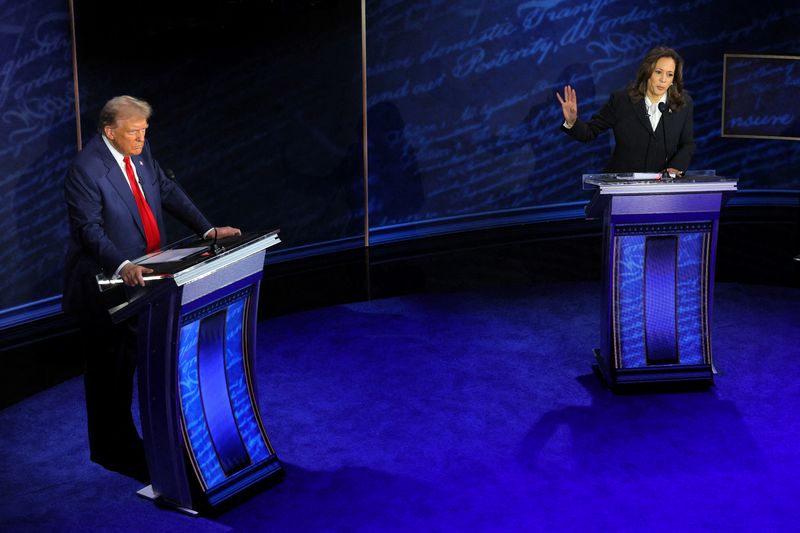Investing.com -- The upcoming U.S. presidential election, a potential face-off between Donald Trump and Kamala Harris, holds major implications for India's economic, geopolitical, and trade dynamics.
As analyzed by TS Lombard, this election could influence India's trade relations, strategic balance, and broader economic future.
Historically, there has been bipartisan support in the U.S. for fostering stronger ties with India, driven by shared strategic interests like containing China's influence, nurturing economic relations, and leveraging the growing Indian diaspora.
Yet, both candidates—Trump and Harris—bring distinct approaches that could impact these ties differently.
A Trump presidency, especially in its second term, might spell heightened trade tensions for India. Trump's past track record, as seen during his first tenure, included referring to India as a "big abuser" of trade relations and imposing tariffs on Indian products.
If re-elected, Trump could potentially implement a 10-20% generalized tariff, severely harming India's exports, especially given that the U.S. is India's largest export market.
In response, India would likely retaliate with proportional tariffs, much like it did in the past after Trump's 2018 tariffs.
This trade friction would be costly for both nations and might create inflationary pressures in India due to higher tariffs on Chinese imports, complicating India's delicate economic balancing act.
Moreover, a Trump 2.0 presidency could lead to macroeconomic instability in India. His potential trade wars with China and other nations could create global inflationary shocks, impacting Indian trade and monetary policy.
The Reserve Bank of India might be forced to tighten its monetary stance to control inflation and stabilize the rupee, potentially hindering India's growth, “our GDP growth forecast for FY25 stands at 7%,” said analysts at TS Lombard.
On the other hand, Kamala Harris, whose policies would likely align closely with the Biden administration, would provide India with a more predictable and stable partnership.
While Harris' administration might not pose new risks to trade, her stronger stance on human rights and democratic backsliding could introduce diplomatic strains.
However, Harris' approach to trade would likely focus on quiet negotiations and resolutions, much like Biden's. Despite a growing trade surplus with the U.S., a Harris presidency would probably avoid the large-scale trade confrontations associated with Trump.
Geopolitically, both Trump and Harris would continue to prioritize India as a key partner in countering China's regional ambitions.
Nonetheless, Trump's softer approach to Russia—such as potentially reducing U.S. support for Ukraine—could make it easier for India to maintain its strategic oil imports from Russia, bolstering India's energy security.
In contrast, a Harris administration would likely take a tougher stance on Russia, which could complicate India's reliance on Russian energy, especially if stricter sanctions are imposed.
Technology and defense cooperation, however, would likely see continuity under either candidate.
Both Trump and Harris are expected to support India's efforts to bolster its defense capabilities and deepen strategic technology partnerships, particularly in areas like telecoms, semiconductors, and critical minerals.
Given the ongoing U.S.-China tensions, the strategic and technological collaboration between the U.S. and India is poised to strengthen regardless of who wins the presidency.
